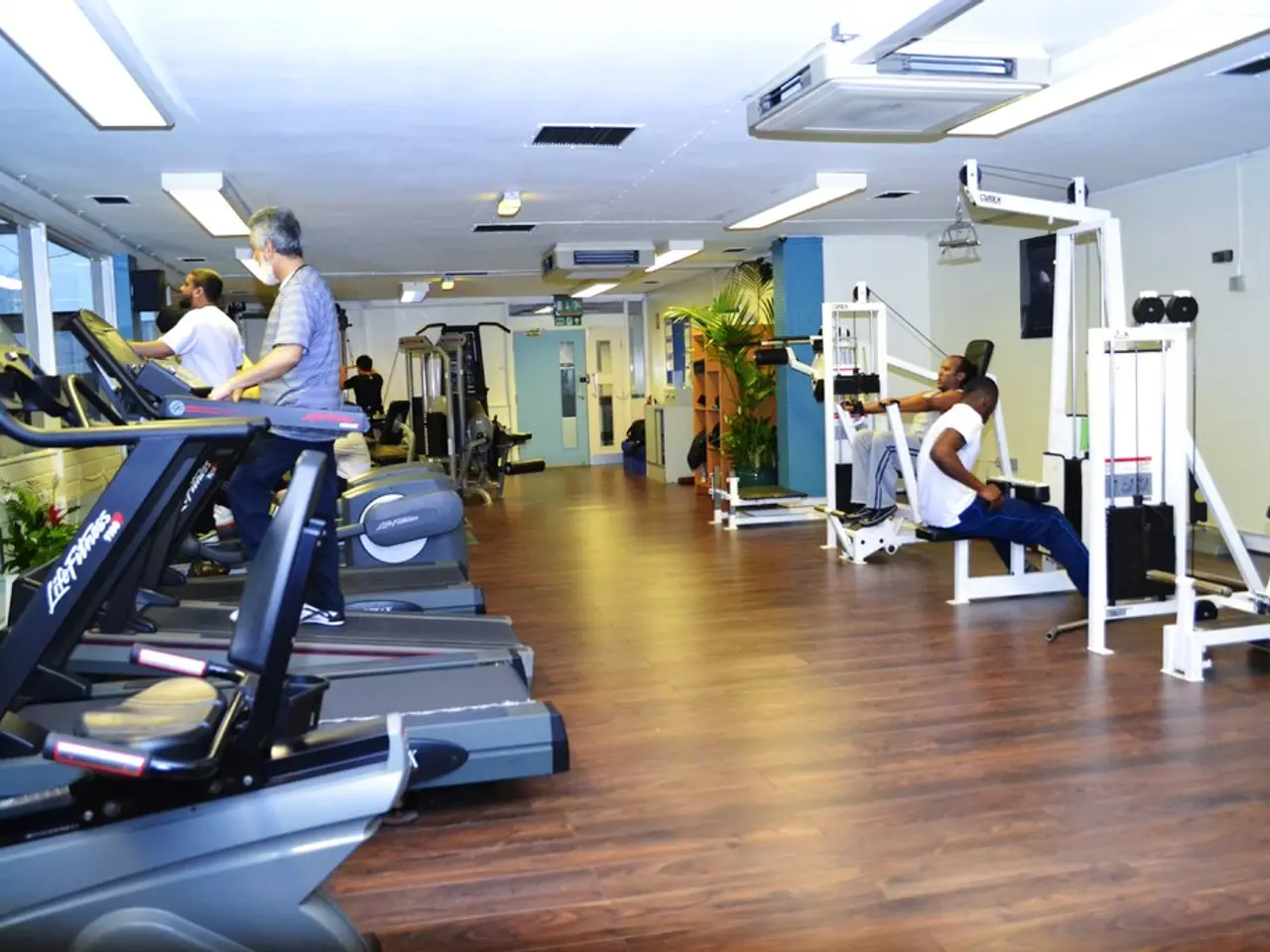"Daily 30-Minute Routine for Healthful Transformation"
A 30-minute daily health routine can bring about significant improvements in physical, mental, and emotional well-being. This gentle, sustainable approach to self-care offers a manageable way to boost health without requiring a massive overhaul of one's lifestyle.
Exercise is a key component of this routine. It increases blood flow to the brain, enhancing cognitive function, memory retention, and problem-solving abilities. Regular exercise also aids in weight management and boosts metabolism.
Engaging in social activities, such as walking with a friend or joining a fitness class, can increase feelings of belonging and support. This social aspect is an essential part of the 30-minute method, as it supports small, consistent actions over time, which yield big results.
The compound effect of 30 minutes a day can lead to significant health improvements. These can include weight loss, disease prevention, reduced medication dependency, and increased energy. Consistency in these daily health habits can reinforce self-discipline and goal-oriented thinking, boost motivation, and create neural pathways that make the behavior automatic.
A well-rounded 30-minute daily routine typically includes a combination of moderate physical activity, strength training, and mindfulness or stretching exercises. For example, a 30-minute full-body workout involving exercises like squats, lunges, push-ups, and core work can build muscle, boost cardiovascular health, and enhance mood. Combining this with moderate aerobic activities such as brisk walking, cycling, or swimming improves mental health by increasing endorphins and reducing stress.
Specifically, a recommended routine could look like this:
- Warm-Up (3-5 minutes): Gentle cardio like jumping jacks or arm circles to increase heart rate.
- Strength and Functional Training Circuit (20-25 minutes):
- Squats and lunges for legs and glutes
- Push-ups, tricep dips, and plank shoulder taps for upper body and core strength
- Core exercises like plank variations and superman holds for back and abdominal muscles
- Mindful Movement or Stretching (5 minutes): Incorporate yoga poses or gentle stretching to improve flexibility, reduce tension, and promote relaxation.
Moderate-intensity exercise, where breathing is heavier but conversation is possible, is ideal for sustained mental and emotional benefits. If time is tight or starting out, breaking exercise into shorter segments still offers significant benefits. Active commuting like biking or walking, and standing more during the day help reduce sedentary time and support overall health.
Incorporating bodyweight exercises can build muscle and bone density. Daily mindfulness practices can help in managing emotions, reducing anxiety, and enhancing emotional intelligence. The World Health Organization (WHO) and the Centers for Disease Control and Prevention (CDC) recommend at least 150 minutes of moderate-intensity aerobic activity per week, which breaks down to about 30 minutes, five times a week.
Regular physical and mental wellness routines can enhance sleep quality and duration by regulating circadian rhythms and reducing cortisol levels. Improved cardiovascular function is one of the benefits of 30 minutes of daily activity. Dedicating 30 minutes daily to health-focused activities can lead to transformative results in physical, mental, emotional, and social health.
Physical activity reduces stress hormones and increases endorphins, the body's natural mood lifters. The psychological shift promoted by the 30-minute habit reinforces consistency, self-worth, and the empowering belief that health is accessible and sustainable even in the busiest life. Disconnecting from digital devices for 30 minutes can promote mindfulness, reduce screen-induced anxiety, and help reset mental state.
In essence, a balanced 30-minute daily health routine combines cardiovascular activity, resistance exercises for major muscle groups, and flexibility or mindfulness practices to foster physical fitness, elevate mood, and support emotional well-being. Embracing this approach can lead to disproportionately large returns across physical, mental, emotional, and social domains of life.
- The 30-minute daily health routine is designed to boost motivation, encouraging a sustainable approach to self-care without requiring drastic lifestyle changes.
- Consistency in this routine promotes better memory and problem-solving abilities, as regular exercise increases blood flow to the brain.
- For weight loss, the routine includes strength training, which can help build muscle and boost metabolism.
- Swimming and cycling are examples of aerobic activities that improve cardiovascular health while reducing stress levels.
- A well-rounded routine might involve bodyweight exercises like squats and lunges, which can help build muscle and bone density.
- Incorporating stretching exercises, such as yoga poses or gentle stretching, can increase flexibility and promote relaxation.
- The routine can help manage emotions and reduce anxiety through daily mindfulness practices.
- The World Health Organization (WHO) and the Centers for Disease Control and Prevention (CDC) recommend at least 150 minutes of moderate-intensity aerobic activity per week, which can be achieved by dedicating 30 minutes daily to health-focused activities.
- The routine also helps regulate circadian rhythms and reduces cortisol levels, leading to improved sleep quality and duration.
- Engaging in social activities like fitness classes or walking with a friend can increase feelings of belonging and support.
- Embracing a health-focused lifestyle that includes regular exercise, proper nutrition, and mindfulness practices can lead to significant improvements in physical, mental, and emotional well-being.
- This 30-minute routine is part of a broader approach to personal growth and self-development, as prioritizing health can foster a positive mindset and emotional intelligence.
- Proper nutrition plays a crucial role in achieving health and wellness goals, as a balanced diet supports overall health, weight loss, and muscle recovery.
- The scientific understanding of fitness, exercise, and nutrition continues to evolve, and ongoing education is essential for maintaining a healthy and balanced lifestyle.
- Committing to this 30-minute daily health routine can lead to transformative results in various aspects of life, from physical fitness and weight loss to mental health and emotional well-being.




